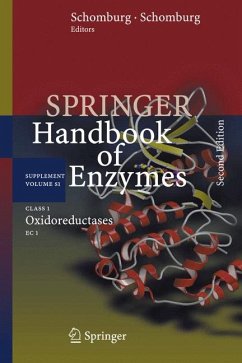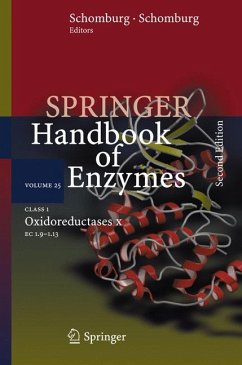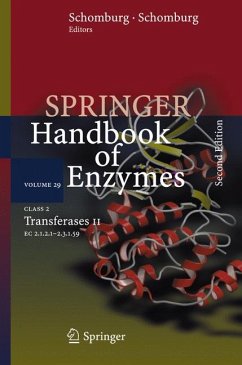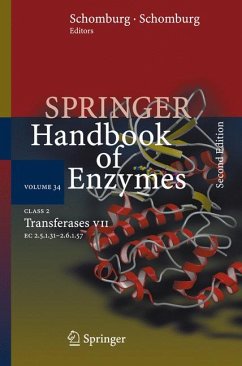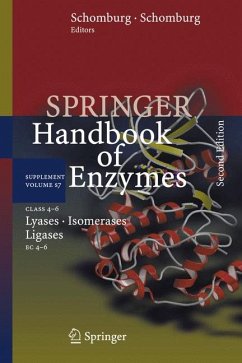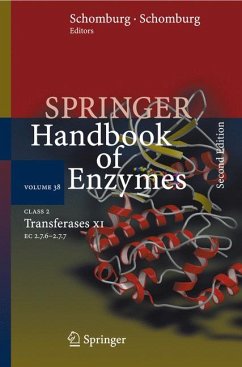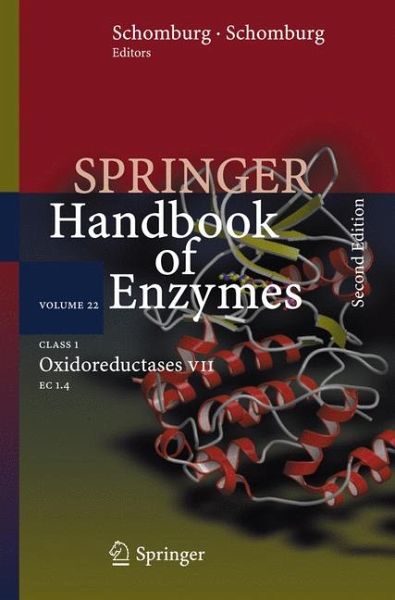
Class 1 Oxidoreductases VII (eBook, PDF)
EC 1.4
Redaktion: Schomburg, Dietmar; Schomburg, Ida
Versandkostenfrei!
Sofort per Download lieferbar
160,95 €
inkl. MwSt.
Weitere Ausgaben:

PAYBACK Punkte
80 °P sammeln!
Springer Handbook of Enzymes offers concise and complete descriptions of some 5,000 enzymes, each sufficiently well characterized. Their application in analytical, synthetic and biotechnology processes as well as in food industry, and for medicinal treatments is added.This new, second edition reflects considerable progress in enzymology: many enzymes are newly classified or reclassified. Each entry is correlated with references and one or more source organisms. New datafields are created: application and engineering. The total amount of material contained in the Handbook has more than doubled ...
Springer Handbook of Enzymes offers concise and complete descriptions of some 5,000 enzymes, each sufficiently well characterized. Their application in analytical, synthetic and biotechnology processes as well as in food industry, and for medicinal treatments is added.
This new, second edition reflects considerable progress in enzymology: many enzymes are newly classified or reclassified. Each entry is correlated with references and one or more source organisms. New datafields are created: application and engineering. The total amount of material contained in the Handbook has more than doubled so that the complete second edition consists of 39 volumes as well as a synonym index. Starting in 2009, all newly classified enzymes are treated in Supplement Volumes.
This new, second edition reflects considerable progress in enzymology: many enzymes are newly classified or reclassified. Each entry is correlated with references and one or more source organisms. New datafields are created: application and engineering. The total amount of material contained in the Handbook has more than doubled so that the complete second edition consists of 39 volumes as well as a synonym index. Starting in 2009, all newly classified enzymes are treated in Supplement Volumes.
Dieser Download kann aus rechtlichen Gründen nur mit Rechnungsadresse in A, B, BG, CY, CZ, D, DK, EW, E, FIN, F, GR, HR, H, IRL, I, LT, L, LR, M, NL, PL, P, R, S, SLO, SK ausgeliefert werden.




